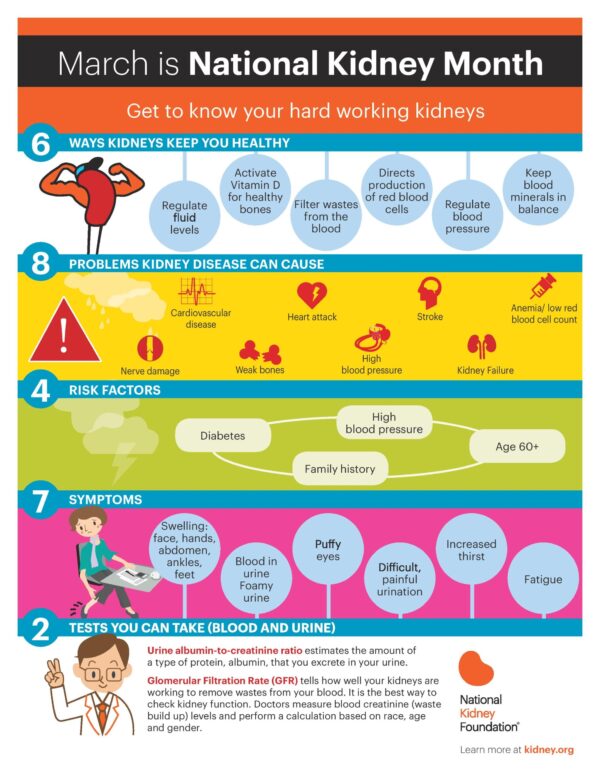Other Events Monthly Events
Other monthly events that MHN supports
MHN Events
All
Day Events
Monthly Events
Wear Blue
Weekly Events
Other Events
All
Day Events
Monthly Events
Weekly Events
Past and Future Events
All
Only Past Events
Only Future Events
Events Status
All
Scheduled
Cancelled
Moved Online
Postponed
Rescheduled
Preliminary
Tentative
january
janCervical Health Awareness MonthUnderstanding Cervical Cancer Prevention
Event Details
Cervical Health Awareness MonthThe United States Congress designated January as Cervical Health Awareness Month. More than 14,000 women in the United States are diagnosed
Event Details
Cervical Health Awareness Month
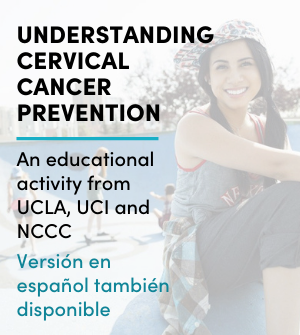
The United States Congress designated January as Cervical Health Awareness Month. More than 14,000 women in the United States are diagnosed with invasive cervical cancer each year, but the disease is preventable with vaccination and appropriate screening.
During January, NCCC and its many local chapters across the country highlight issues related to cervical cancer, HPV disease and the importance of early detection. While NCCC chapters host events throughout the year, January is a month with a special focus as chapters celebrate Cervical Health Awareness Month and work to spread the word in their communities.
NCCC and the American Sexual Health Association (ASHA) also offer a range of resources (listed below) to educate the public and healthcare providers about cervical health, from fact sheets to episodes of ASHA’s Sex+Health podcast.
What Can You Do?
As someone who is interested in educating and advocating for increased knowledge of cervical cancer and HPV disease, you can do a lot. You can contact your local media to encourage coverage of Cervical Health Awareness Month, offering this ASHA/NCCC press release. You can also send this proclamation to your mayor, or local legislative office to publicly recognize Cervical Health Awareness Month.
You can also check out the resources on this page—download, display and distribute our cervical cancer awareness month posters and help NCCC and ASHA get the word out on social media.
more
Time
Month Long Event (january)(GMT-05:00)
Future Event Times in this Repeating Event Series
january, 2026january, 2027january, 2028january, 2029january, 2030
janEmployee Health and Fitness MonthNational Association for Health and Fitness
Event Details
The National Association for Health and Fitness (NAHF) was founded in 1979 by the President's Council on Physical Fitness,
Event Details
The National Association for Health and Fitness (NAHF) was founded in 1979 by the President’s Council on Physical Fitness, Sports and Nutrition and has as its vision that America shares in the social, economic, health and environmental benefits that come from living an active lifestyle. Our mission is to improve the quality of life for all individuals in the United States by promoting physical fitness, sports and healthy lifestyles. We also champion environmental and policy support for active living and encourage and share innovation in the United States. NAHF values active living (integrating physical activity into daily lives), community involvement and leadership development for all social sectors, promoting quality physical education in our schools, developing workforce health promotion programs and active-aging programs. With our focus on the states, NAHF “bridges the gap” between federal and local action and unites researcher and community practitioner.
America’s “challenge” of inspiring and empowering people to be physically active is vital to our nation’s human and economic health. At no other time in NAHF history has this Association’s mission and innovation in the United States been more relevant. NAHF members have been leaders in presenting capacity-building national meetings, development of user-friendly behavior change programs, and recognizing excellence and advocacy for policy and environmental support of active living through our annual Gold Star Awards and Glenn V. Swengros Award. Our award-winning worksite health promotion, Global Employee Health and Fitness Month, has resulted in thousands of employees leading healthier lives! USA school districts, universities, state and local governments, hospital systems, pharmacies, and public health departments have all been participants in the GEHFM initiatives.
more
Time
Month Long Event (january)(GMT-05:00)
Future Event Times in this Repeating Event Series
january, 2026january, 2027january, 2028january, 2029january, 2030
janNational Glaucoma Awareness MonthNational Eye Care Month - Prevent Blindness America
Event Details
Event Details
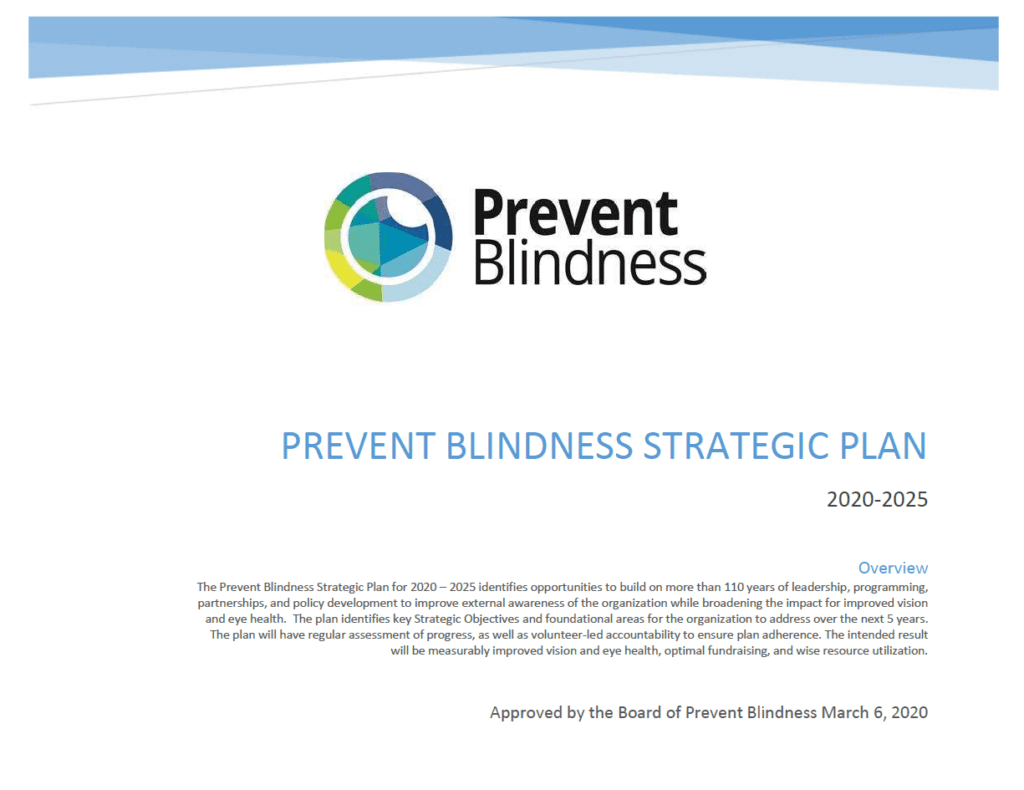
Time
Month Long Event (january)(GMT-05:00)
Future Event Times in this Repeating Event Series
january, 2026january, 2027january, 2028january, 2029january, 2030
janMarch of Dimes Birth Defects Prevention MonthMarch of Dimes Birth Defects Foundation
Event Details
The U.S. is facing an urgent maternal and infant health crisis—but together with our partners and supporters, we can end preventable maternal health risks and death, end preventable preterm birth,
Event Details
The U.S. is facing an urgent maternal and infant health crisis—but together with our partners and supporters, we can end preventable maternal health risks and death, end preventable preterm birth, and close the health equity gap for every family.
We imagine a world where every mom and baby is healthy regardless of wealth, race, gender, or geography.
more
Time
Month Long Event (january)(GMT-05:00)
Future Event Times in this Repeating Event Series
january, 2026january, 2027january, 2028january, 2029january, 2030
february
febAmerican Heart MonthAmerican Heart Association
Event Details
Prevent heart disease, America’s No. 1 killer Your gift helps save lives today and for the next generation. Give now to help
Event Details
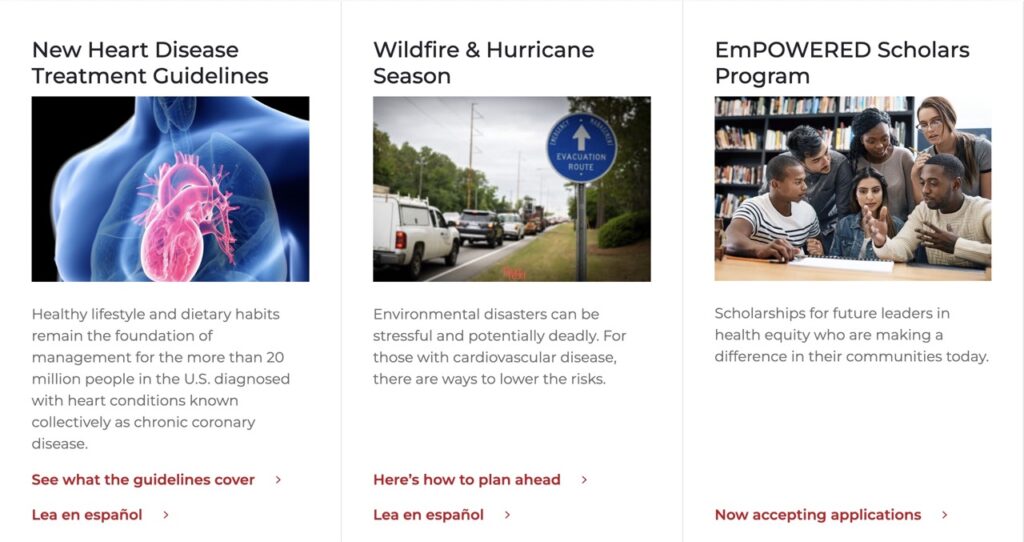
Prevent heart disease, America’s No. 1 killer
Your gift helps save lives today and for the next generation. Give now to help fund breakthrough research, prevention programs, and more.
Time
Month Long Event (february)(GMT-05:00)
Future Event Times in this Repeating Event Series
february, 2026february, 2027february, 2028february, 2029february, 2030
febNational Children’s Dental Health Month
Event Details
February is National Children's Dental Health MonthThe February 2023 National Children's Dental Health Month is brought to you by
Event Details
February is National Children’s Dental Health Month
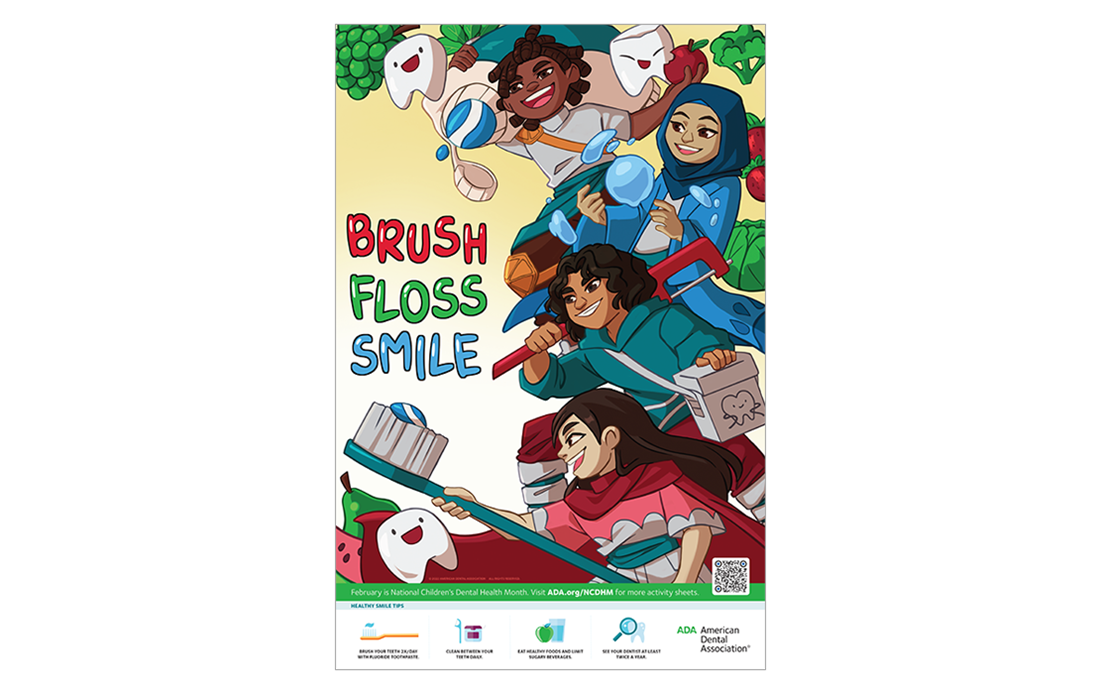
Thank you for your support! The American Dental Association is pleased to share that we have distributed over 120,000 posters to oral health champions in honor of National Children’s Dental Health Month.
Please note that as of Friday, 3/17/23, we have stopped orders for the 2023 NCDHM materials. Posters, flyers, and activity sheets are still available for download on this page. If you have questions or concerns, please email ncdhm@ada.org.
More information will be available in October regarding the 2024 NCDHM theme!
more
Time
Month Long Event (february)(GMT-05:00)
Future Event Times in this Repeating Event Series
february, 2026february, 2027february, 2028february, 2029february, 2030
march
febAmerican Heart MonthAmerican Heart Association
Event Details
Prevent heart disease, America’s No. 1 killer Your gift helps save lives today and for the next generation. Give now to help
Event Details

Prevent heart disease, America’s No. 1 killer
Your gift helps save lives today and for the next generation. Give now to help fund breakthrough research, prevention programs, and more.
Time
Month Long Event (february)(GMT-05:00)
Future Event Times in this Repeating Event Series
february, 2026february, 2027february, 2028february, 2029february, 2030
febNational Children’s Dental Health Month
Event Details
February is National Children's Dental Health MonthThe February 2023 National Children's Dental Health Month is brought to you by
Event Details
February is National Children’s Dental Health Month

Thank you for your support! The American Dental Association is pleased to share that we have distributed over 120,000 posters to oral health champions in honor of National Children’s Dental Health Month.
Please note that as of Friday, 3/17/23, we have stopped orders for the 2023 NCDHM materials. Posters, flyers, and activity sheets are still available for download on this page. If you have questions or concerns, please email ncdhm@ada.org.
More information will be available in October regarding the 2024 NCDHM theme!
more
Time
Month Long Event (february)(GMT-05:00)
Future Event Times in this Repeating Event Series
february, 2026february, 2027february, 2028february, 2029february, 2030
marColorectal Cancer Awareness MonthPrevent Colorectal Cancer
Event Details
Colorectal cancer is preventable, treatable and beatable. With your help,
Event Details
Colorectal cancer is preventable, treatable and beatable. With your help, we can dare to imagine a world without it. The key is regular screenings—starting earlier than you might think.
Start screening at age 45 if you are at average risk. If you are at increased risk, you may need to be screened earlier or more often – talk with your doctor right away.
Most people think that colorectal cancer affects only older adults, but estimates suggest that by 2040, colorectal cancer will be the leading cause of cancer related death in adults aged 20-49. Learn more about colorectal cancer and screenings that are available.
Early detection of colorectal cancer can mean Better Outcomes: less extensive treatment, more treatment options and better chances of survival.
Join us in #ColorectalCancerAwarenessMonth by sharing how easy it is to get screened and why it matters to you. You never know who may need to hear your story.
more
Time
Month Long Event (march)(GMT-05:00)
Future Event Times in this Repeating Event Series
march, 2026march, 2027march, 2028march, 2029march, 2030
marNational Kidney MonthNational Kidney Foundation
Event Details
Mark your calendars, March is National Kidney Month -- a tribute to the 37 million lives affected by CKD and an important time to raise awareness
Event Details
Mark your calendars, March is National Kidney Month — a tribute to the 37 million lives affected by CKD and an important time to raise awareness for this silent killer. When it comes to saving lives, every voice and every action makes a difference. Will you join us?
3 ways to celebrate:
- Bring urgency to kidney health on social media. Share our message by signing up for the 2018 World Kidney Day Thunderclap via Twitter, Facebook, Tumblr or all three, and get the word out to your friends and followers to do the same. On March 8th, watch as everyone’s messages are blasted out simultaneously at 12PM!
- Change your profile photo. Show your kidney pride on your social media profile. Use the National Kidney Foundation Heart Your Kidneys profile frame on Facebook to demonstrate your commitment to kidney health all month long – beginning March 1st.
- Watch and share a PSA featuring Angelica Hale, our first-ever NKF Kid-Ambassador. Knowledge is power; let others know how to protect their kidney health with this star-studded video.
more
Time
Month Long Event (march)(GMT-05:00)
Future Event Times in this Repeating Event Series
march, 2026march, 2027march, 2028march, 2029march, 2030march, 2031march, 2032march, 2033march, 2034
marWorkplace Eye Health and Safety MonthPrevent Blindness America
Event Details
Prevent Blindness Declares March as Workplace Eye Wellness Month to Educate on Ways to Protect Vision on the JobPrevent Blindness has declared March as
Event Details
Prevent Blindness Declares March as Workplace Eye Wellness Month to Educate on Ways to Protect Vision on the Job
Prevent Blindness has declared March as Workplace Eye Wellness Month to provide employers and employees with free information on the dangers of blue light, digital devices and vision, and eye injury prevention in order to promote eye health at work.
The largest source of blue light is sunlight. However, there is concern over the long-term effects of screen exposure (from television screens, computer monitors, smart phones, and tablet screens) because of the close proximity of the screens and the length of time spent looking at them, such as during the workday combined with leisure time. Early research shows that too much exposure to blue light could lead to:
Digital eyestrain – Fatigue, dry eyes, bad lighting, or how one sits in front of the computer can cause eyestrain. Symptoms of eyestrain include sore or irritated eyes and difficulty focusing.
Retina damage – Studies suggest that continued exposure to blue light over time could lead to damaged retinal cells. This can cause vision problems such as age-related macular degeneration or cataract. www.reviewofoptometry.com/ce/the-lowdown-on-blue-light-good-vs-bad-and-its-connection-to-amd-109744
According to a recent report from The Vision Council, “Blue Light Exposure and Digital Eye Strain,” 87 percent of survey respondents use digital devices more than two hours per day and over 52 percent regularly use two digital devices simultaneously.
Once again, Prevent Blindness is partnering with Healthe and its EyeSafe® technologies. Healthe will donate a portion of the sales of its EyeSafe products, including protective covers for digital phones, tablets and computer monitors that reduce exposure to harmful digital UV and High-Energy Visible (HEV) blue light emitted from such devices, to Prevent Blindness in support of its children’s eye health programs and resources.
“As we spend more and more time on digital devices, at work or at play, we need to make sure we take care of our vision,” said Hugh R. Parry, president and CEO of Prevent Blindness. “By talking to an eye care professional and getting the proper recommendations, we can make sure we protect our eyes for the future.”
To help prevent an eye injury at work, Prevent Blindness recommends:
- Know the eye safety dangers at work-complete an eye hazard assessment
- Eliminate hazards before starting work. Use machine guarding, work screens, or other engineering controls)
- Use proper eye protection such as non-prescription and prescription safety glasses, goggles, face shields, welding helmets, or full-face respirators.
Prevent Blindness also offers a Work Safety module as part of its free program, the Healthy Eyes Educational Series. Each module in the series includes a Presentation Guide and corresponding PowerPoint presentation on a relevant eye health topic such as adult eye disorders, eye anatomy, healthy living, low vision and various safety topics. Fact sheets can be downloaded at any time from the Prevent Blindness website for use as handouts to accompany the presentation.
To find out more about workplace eye health topics, please call Prevent Blindness at (800) 331-2020.
more
Time
Month Long Event (march)(GMT-05:00)
Future Event Times in this Repeating Event Series
march, 2026march, 2027march, 2028march, 2029march, 2030march, 2031march, 2032march, 2033march, 2034
marNational Nutrition MonthAmerican Dietetic Association
Event Details
National Nutrition Month® is an annual campaign created 50 years ago in 1973 by the Academy of Nutrition and Dietetics. During the month of
Event Details
National Nutrition Month® is an annual campaign created 50 years ago in 1973 by the Academy of Nutrition and Dietetics. During the month of March, everyone is invited to learn about making informed food choices and developing healthful eating and physical activity habits.

This year’s theme is “Fuel for the Future.” Eating with sustainability in mind is a tasty way to nourish ourselves during every phase of life and protect the environment. A Registered Dietitian Nutritionist can help you create healthy habits that are sustainable and celebrate your unique needs.
more
Time
Month Long Event (march)(GMT-05:00)
Future Event Times in this Repeating Event Series
march, 2026march, 2027march, 2028march, 2029march, 2030
april
aprNational Youth Sports Safety MonthNational Youth Sports Safety Foundation, Inc
Event Details
“Making Youth Sports a Public Health Solution” (SM)
Event Details
“Making Youth Sports a Public Health Solution” (SM)
 The National Youth Sports Health & Safety Institute (NYSHSI), a partnership between the American College of Sports Medicine® and Sanford Health, is the leading advocate for advancing and disseminating the latest research and evidence-based education, recommendations and policy to enhance the experience, development, health and safety of our youth in sports.
The National Youth Sports Health & Safety Institute (NYSHSI), a partnership between the American College of Sports Medicine® and Sanford Health, is the leading advocate for advancing and disseminating the latest research and evidence-based education, recommendations and policy to enhance the experience, development, health and safety of our youth in sports.
more
Time
Month Long Event (april)(GMT-04:00)
Future Event Times in this Repeating Event Series
april, 2026april, 2027april, 2028april, 2029april, 2030
aprChild Abuse Prevention MonthPrevent Child Abuse America and Child Welfare Information Gateway
Event Details
Ever since April was designated as National Child Abuse Prevention (CAP) Month in 1983, Prevent Child Abuse America (PCA America) and its nationwide network
Event Details
Ever since April was designated as National Child Abuse Prevention (CAP) Month in 1983, Prevent Child Abuse America (PCA America) and its nationwide network of state chapters, along with other child welfare organizations, have recognized it as a time to raise awareness and inspire collective action, so that our country’s children can lead their best lives.
What is Child Abuse Prevention Month?
Many innovative strategies are employed to promote National Child Abuse Prevention Month. Events and activities have included everything from kid’s art contests to coordinated visits to state legislators and days of prayer. Many of our PCA America state chapters have created guides with suggestions to help with social media campaigns, creating community programs, and much more. Check out these Child Abuse Prevention Month toolkits from Kansas, North Carolina, and Virginia.
 This year’s national campaign theme is “Every day, we help positive childhood experience take root!” We encourage our chapters, affiliates, and stakeholders to use a garden metaphor to reinforce this message. Here are some talking points to use as examples:
This year’s national campaign theme is “Every day, we help positive childhood experience take root!” We encourage our chapters, affiliates, and stakeholders to use a garden metaphor to reinforce this message. Here are some talking points to use as examples:
- Children are locally grown. We work together to cultivate relationships, connections, and environments that help every child thrive.
- We harvest what we sow. We plant seeds of support for all children to yield healthier adults with abundant futures.
- Work is rooted in science. We know positive childhood experiences in nurturing environments provide fertile ground for physical and mental health, learning, and social skills to flourish. We unearth the possibilities. We focus on innovation every day to give every child what they need and to build bountiful, safe communities.
- Planning and purpose create common ground. We share resources equitably, expand access to services, and balance conditions for positive childhood experiences to enrich every community.
- We tend and replenish the soil. We offer homegrown solutions and hardy support to protect what we grow in all elements.
- Hope and commitment are powerful fertilizers. We combine the promise of a better tomorrow with our resolve to nourish all children and their families in every season.
more
Time
Month Long Event (april)(GMT-04:00)
Future Event Times in this Repeating Event Series
april, 2026april, 2027april, 2028april, 2029april, 2030
aprTesticular Cancer Awareness Monthcelebrated in April of each year
Event Details
Testicular Cancer Awareness Month is celebrated in April of each year. About Testicular Cancer Testicular cancer is the most common type of cancer in men ages
Event Details
Testicular Cancer Awareness Month is celebrated in April of each year.
About Testicular Cancer
Testicular cancer is the most common type of cancer in men ages 15-35 years, but men of all ages can be at risk.
Testicular cancer is of special concern to young men. It’s less common in middle-aged and older men. Caucasian men are about 5 times more likely to develop testicular cancer than African American men. The rate among Hispanic men lies between those of African Americans and Caucasians.
In the U.S., over 9,400 cases are diagnosed each year, and about 440 males die of testicular cancer. According to the American Cancer Society, the average age of diagnosis is about age 33.
Most testicular cancer awareness organizations recommend that males conduct regular self-exams. Instructions for self-exams can be found here.
You can learn more about testicular cancer at the Men’s Health Resource Center.
You can download free brochures in English and Spanish at the Men’s Health Library.
English | Spanish
Or, you can purchase a Testicular Cancer Awareness promotional kit, with posters, shower hangers, brochures, and more.
Get Involved, Raise Awareness—Use Our Social Media Toolkit
Download the 2022 toolkit here.
- Testicular Cancer Awareness Month hashtags to use: #TesticularCancer #TCa
- April is #TesticularCancer Awareness Month. Make sure to get your screening or exam! #TCA http://ow.ly/Jf4230akO58
- 9,470 men will be diagnosed with #TesticularCancer this year. Know your individual risk. #TCA http://ow.ly/pz9p30alkL3
- Support is out there for men living w/ #testicularcancer. Join our #Inspire discussion group http://ow.ly/opAT30al8KW
- Younger men can have testicular issues too. 33 is the average age of a #TesticularCancer diagnosis. http://ow.ly/FQTD30al96Z
- See some treatment options for #testicularcancer – Find out about your options here http://ow.ly/moHx30al9Le
- White men & men with a family history of #TesticularCancer are at greater risk. Know your individual risk. #TCA http://ow.ly/zIUe30alaw6
- Ladies – testicular health can be a sensitive topic. Encourage your male loved ones to know their risk. #TesticularCancer #TCa http://ow.ly/IE5u30alcrX
- Listen up. It’s Testicular Cancer Awareness Month! Get checked this April – learn about testicular health here – http://ow.ly/ksuz30alliz
- Ladies – April is Testicular Health Month. Women are often the ones who get men to go to the doctor for screenings. When was the last time the men in your life got checked? http://bit.ly/XQy18W
- If you’ve been diagnosed with #testicularcancer or know someone who has make sure you get a second opinion about treatment options. http://ow.ly/RpZHk
- Not only is it Testicular Cancer Awareness Month but it’s also National Minority Health Month. Make sure you know more about Minority Health Month http://ow.ly/GKP830aldc6
- #TesticularCancer is a serious disease that affects nearly 10,000 men each year. But it is also treatable if caught early. Make sure you get in and get checked this April for Testicular Cancer Awareness Month.
- Risk factors for #TesticularCancer include but are not limited to: Age, Race, Family History, Diet, and Exposure to certain chemicals. Make sure you are talking with your doctor and know your risk. http://ow.ly/GbzN30alkjX
Posters, Flyers, and Graphics
View & Download.
Warning, some of the material may contain mature content and may be inappropriate for some users.
Videos
Warning, the videos on this page may contain mature content and may be inappropriate for some users.
Some of the videos are produced by the Male Cancer Awareness Campaign and Ballboys, a testicular cancer charity.
The Ask Dr. Oz segment is produced by the Oprah Winfrey Show.
more
Time
Month Long Event (april)(GMT-04:00)
Future Event Times in this Repeating Event Series
april, 2026april, 2027april, 2028april, 2029april, 2030
aprNational Minority Health MonthU.S. Department of Health and Human Services
Event Details
Better Health Through Better Understanding Every April, the U.S. Department of Health and Human Services (HHS) Office of Minority Health (OMH) observes National Minority Health Month to
Event Details
Better Health Through Better Understanding
Every April, the U.S. Department of Health and Human Services (HHS) Office of Minority Health (OMH) observes National Minority Health Month to highlight the importance of improving the health of racial and ethnic minority and American Indian/Alaska Native (AI/AN) communities and reducing health disparities.
OMH is proud to announce the theme for National Minority Health Month 2023: Better Health Through Better Understanding.
This year’s theme focuses on improving health outcomes for racial and ethnic minority and AI/AN communities by providing them with culturally and linguistically competent healthcare services, information, and resources. When patients are provided with culturally and linguistically appropriate information, they are empowered to create healthier outcomes for themselves and their communities.
Continue to visit this page through April to learn more about the importance of:
- Increased health literacy for patients
- Providing culturally competent care for diverse populations
- Improving access to health care information for patients with limited English proficiency (LEP)
Check out the OMH Knowledge Center’s 2023 Health Literacy and Limited English Proficiency Reading List, featuring factsheets and toolkits for consumers, reports and recommendations for professionals, and peer-reviewed journal articles. All the resources are available to read and download for free.
Get Involved in National Minority Health Month
Follow us on Twitter, Facebook, and Instagram, and sign up for OMH newsletters for additional updates on this year’s National Minority Health Month.
About National Minority Health Month
The foundation for National Minority Health Month was laid by educator, author, and civil rights leader Booker T. Washington, who, in 1915, established National Negro Health Week (NNHW) to bring awareness to the health disparities affecting African Americans caused by poor working and living conditions. NNHW was recognized until 1951 and formed the basis for many of the health-focused observances we celebrate today.
In 2000, HHS launched Healthy People 2010, the third iteration of the Healthy People framework, with the explicit goal of eliminating health disparities for racial and ethnic minority and AI/AN communities. In 2002, as part of a response to this call for action, the U.S. Congress resolved that “a National Minority Health and Health Disparities Month should be established to promote educational efforts on the health problems currently facing minorities and other health disparity populations.”
more
Time
Month Long Event (april)(GMT-04:00)
Future Event Times in this Repeating Event Series
april, 2026april, 2027april, 2028april, 2029april, 2030
aprNational Cancer Control Month (Presidential Proclamation)American Cancer Society
Event Details
Since the Congress passed the landmark National Cancer Act in 1971, our Nation has made tremendous strides in preventing, detecting, and treating cancer. But nearly
Event Details
Since the Congress passed the landmark National Cancer Act in 1971, our Nation has made tremendous strides in preventing, detecting, and treating cancer. But nearly all families –including my own and that of the Vice President’s — still know the pain a cancer diagnosis brings. Despite our Nation’s progress over the last 50 years, cancer in its many forms is still the second leading cause of death in the United States, with more than 600,000 deaths and nearly 1.9 million new cancer diagnoses each year. A cancer diagnosis remains a crushing blow to those diagnosed, as well as their loved ones. In the name of all those we have lost and for all those still fighting, I believe we can end cancer as we know it.
During National Cancer Control Month, we renew our commitments to improve cancer prevention, promote early detection, enhance treatment, and support the needs of cancer patients, survivors, and caregivers. We recognize that while the fight against cancer is often personal, the desire to make cancer more preventable, detectable, and treatable is one that has the potential to unite us as a Nation, inspiring us to stand together and work together.
In 2016, as Vice President, I led the Cancer Moonshot to accelerate our progress against cancer and take advantage of 21st century science and technology — an effort that has catalyzed change across the cancer community. As President, I have reignited the Cancer Moonshot and set ambitious new goals to reduce the death rate from cancer by 50 percent over the next 25 years and to improve the experience of people and their families living with and surviving cancer. We are creating the Advanced Research Projects Agency for Health (ARPA-H), with the singular purpose of expediting breakthroughs in the prevention, detection, and treatment of cancer and other deadly diseases.
As part of a recommitment to the Cancer Moonshot, the First Lady and I announced a call to action on cancer screening and early detection. Our goal is to drive progress on potentially life-saving screenings that so many Americans have missed as a result of the pandemic and to help ensure that everyone in the United States benefits equitably from the technology we have to detect, diagnose, and treat cancer. We urge every American to get back on track with their recommended screenings, and we implore the public and private sectors to increase access to early detection for individuals and communities. To learn more about which cancer screenings are appropriate for you, talk to your healthcare provider, visit cdc.gov/cancerscreening or cancer.gov/screeningtests, or call 1-800-4-CANCER.
We also encourage Americans to take the proven steps to lower their risk for many forms of cancer. Experts agree that reducing tobacco use, eating healthily, engaging in regular physical activity and exercise, limiting alcohol consumption, and reducing exposure to the sun when it is at its peak can help reduce the risk of a cancer diagnosis. Given that cigarette smoking is responsible for 30 percent of all cancer deaths, helping people quit smoking and limiting exposure to secondhand smoke can save lives. Resources are available at SmokeFree.gov, by calling 1-800-QUIT-NOW, or by texting QUITNOW to 333888.
Access to health coverage is critical to the fight against cancer, and we were proud to expand access to quality, affordable coverage through the American Rescue Plan. Most health insurance plans are required to cover recommended cancer screenings with no out-of-pocket costs. But for millions of Americans, the care they need is not within reach. That is why I am committed to reducing prescription drug costs and health insurance premiums for millions of Americans and closing the Medicaid coverage gap in States that refuse to expand Medicaid. This would allow millions more of our fellow Americans to access cancer screenings and tobacco cessation services.
We also thank the doctors, nurses, researchers, caregivers, and advocates who are dedicated to finding treatments and cures and reducing the pain and burden of cancer. Our Nation’s health care workers continued to provide care and support to cancer patients and their loved ones, even as a global pandemic made their jobs more difficult and demanding, and our Nation is forever grateful.
During Cancer Control Month, we reaffirm our national commitment to meet the scourge of cancer with urgency and with all the tools and talent we can bring to bear. For survivors and caregivers who carry the physical and mental scars of cancer treatment and recovery, for those who we have lost, and for those who we can save — let us end cancer as we know it.
NOW, THEREFORE, I, JOSEPH R. BIDEN JR., President of the United States of America, do hereby proclaim April 2022 as National Cancer Control Month. I encourage citizens, government agencies, private businesses, nonprofit organizations, and other interested groups to join in activities that will increase awareness of what Americans can do to prevent, detect, treat, and control cancer.
IN WITNESS WHEREOF, I have hereunto set my hand this thirty-first day of March, in the year of our Lord two thousand twenty-two, and of the Independence of the United States of America the two hundred and forty-sixth.
JOSEPH R. BIDEN JR.
more
Time
Month Long Event (april)(GMT-04:00)
Future Event Times in this Repeating Event Series
april, 2026april, 2027april, 2028april, 2029april, 2030
aprSexually Transmitted Disease (STD) Awareness MonthAmerican Sexual Health Association
Event Details
This April, in honor of STI Awareness Month, take some time to learn about
Event Details
This April, in honor of STI Awareness Month, take some time to learn about sexually transmitted infections (STIs). Anyone who is sexually active can get an STI, so why not learn more about them and how to minimize your exposure to STIs and take care of your sexual health.
CDC marks its own STI Awareness Week in April with the theme Talk, Test, Treat. It’s a good framework to think about STIs and your sexual health. Let’s start with talk—there’s a lot to talk about!
Talking openly and honestly about sex and sexual health makes for relationships that are more fun and satisfying. STIs are one part of that talk—when you were last tested for STIs, which ones, and what the results were. You can also talk about how often you get tested and whether you’ve had any partners since your last test. Having an open and honest conversation about STIs before you become sexually intimate is ideal.
But there’s so much more to talk about! What safer sex precautions do you want to take? Are you interested in a monogamous relationship or not? What gets you excited? What kind of touch do you like…and what do you not like. On that note, what are your boundaries?
Sounds like a lot, doesn’t it? Where do you even begin? What if you want to talk about a positive STI diagnosis? How do you bring up the topic of pleasure? Evalene Dacker, MD, is a physician and sexual health educator who has created a great model that helps guide the conversation—the STARS Model. STARS is an acronym that stands for : Sexual Health and STI Status, Turn-Ons, Avoids, Relationship Intentions and Expectations, and Safety Needs and Safer Sex Etiquette.
more
Time
Month Long Event (april)(GMT-04:00)
Future Event Times in this Repeating Event Series
april, 2026april, 2027april, 2028april, 2029april, 2030



